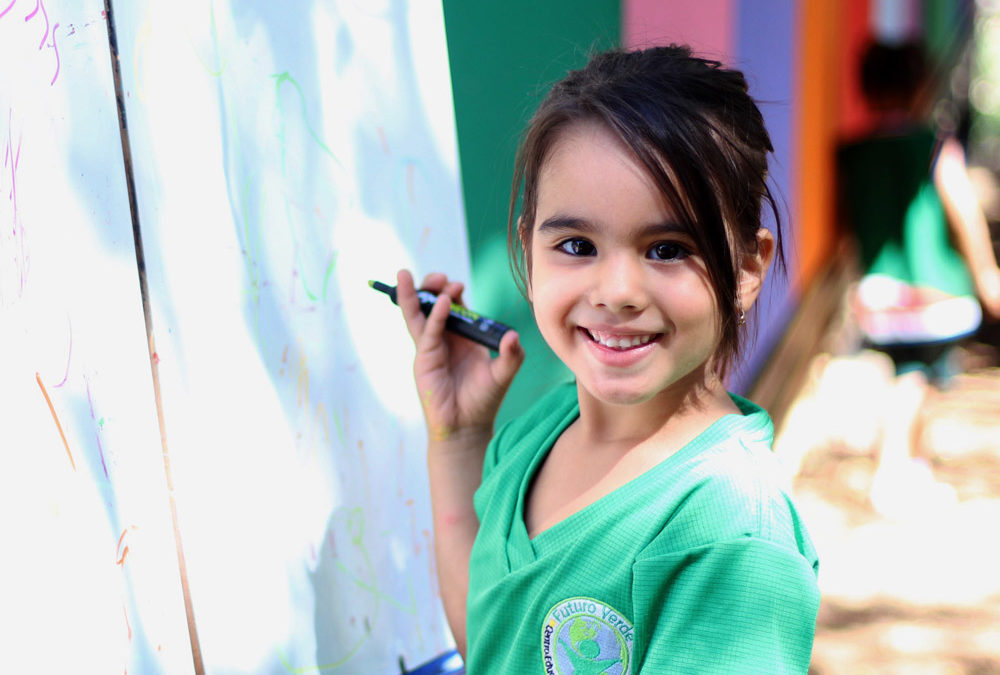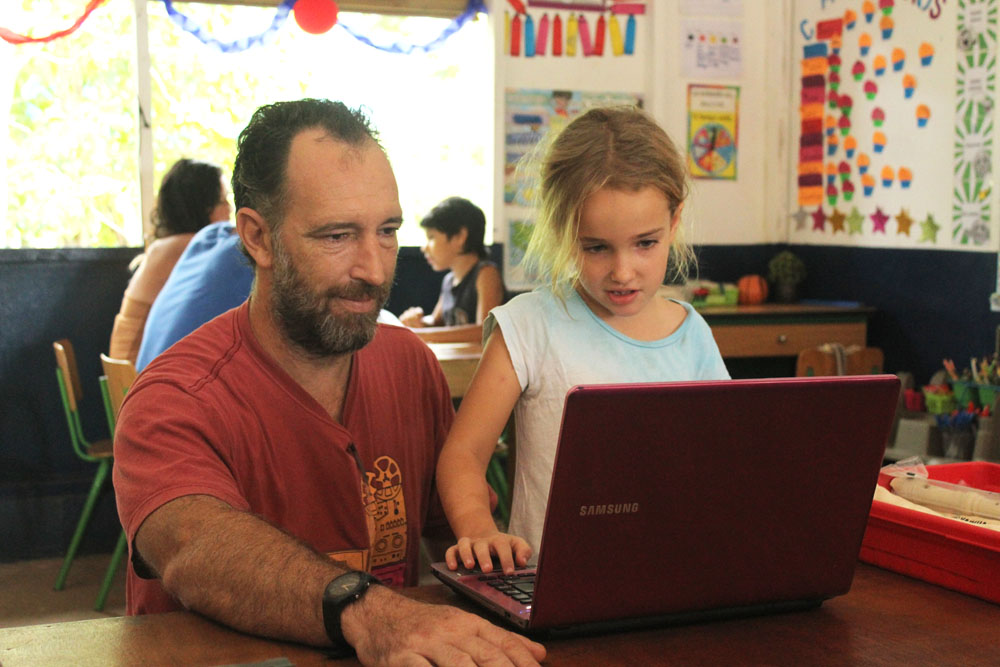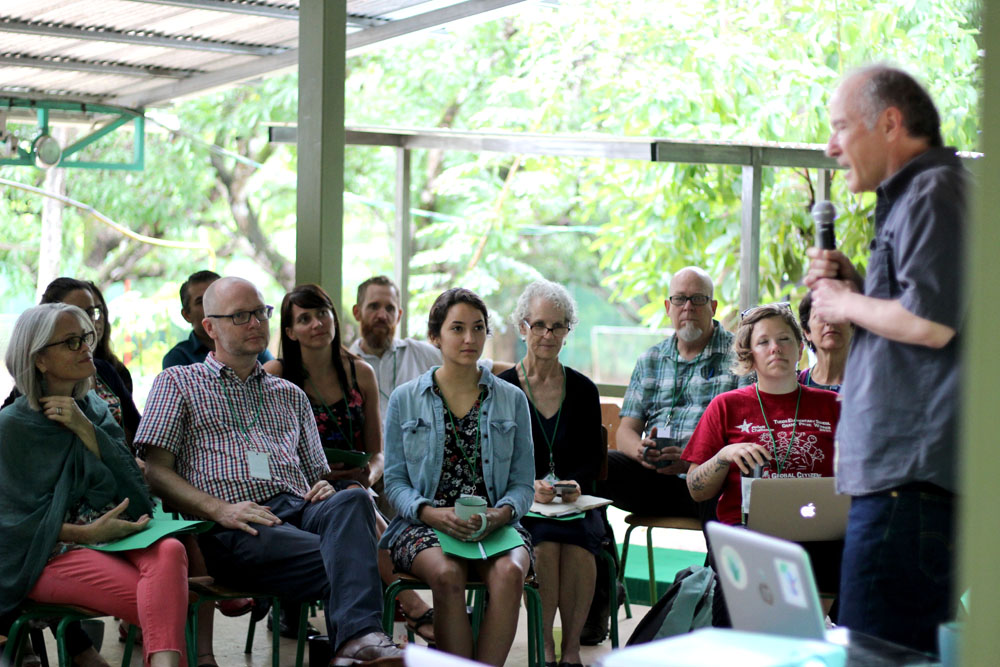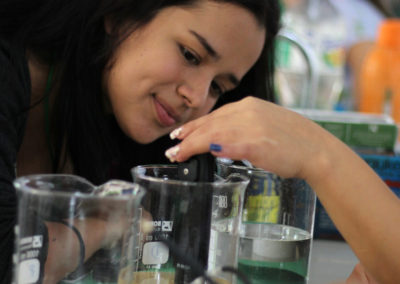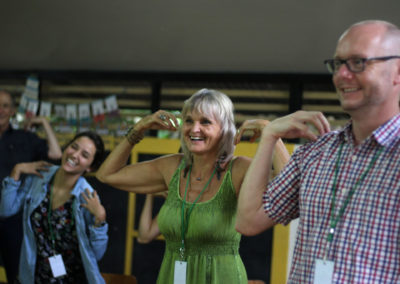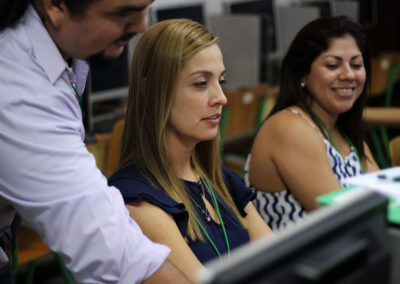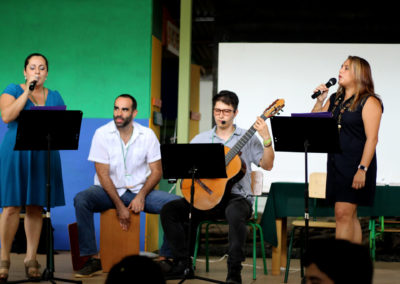
Insights from a new family at Futuro Verde

It didn’t take long to make the decision. The forest fires were out of control in Southern California; 2017 turned out to be the most destructive year on record. The day I walked our son, Django, to his school in Venice, the sky was eerily yellow, almost apocalyptic. Ash fell like snow into my scalding latte. News of another mass shooting. The inevitable insane tweets of a madman followed. The air was thick with contaminants of all kinds.
It seemed like the perfect time for a change. France or Spain perhaps? We’d travelled extensively around Europe and could imagine ourselves living there. Dreaming up Django’s perfect future school – a mix of Waldorf, Forest and multi-lingual education, we began our search. My husband, Gary, was in between jobs and had started a consulting gig. I was in the midst of financing post-production for my documentary so as long as there was internet, we figured a digital nomadic lifestyle could work. Then a friend mentioned Costa Rica. It was never on our list of countries to visit, let alone live.
Two months later, our apartment packed up, we found ourselves Costa Rica-bound on an unexpected adventure. As it turned out, Futuro Verde was the school of our dreams – at least on paper.
With a couple of weeks to get settled before the first day of term, the reality of living in an actual jungle had not quite sunk in. I hate to use clichés, but there was no question we were fish out of the water. The first night in the little village of Panica, we lay awake under the sheets, terror-stricken by the sounds of a demon-like creature, bellowing ever closer to the pitch-black bedroom. No-one had warned us that power outage were the norm. Having just recovered from the fright of a scorpion scuttling by our feet at dinner time, these urbanites were truly panicked. Or only the adults, should I say, as Django was in his element, relishing every bit of the drama. Discovering that those supernatural sounds came from the sheepish howler monkey was a great relief.
It’s no exaggeration that we were immediately spellbound after the first week of school. Observing Django’s excitement in his new environment surrounded by nature, was nothing short of joyous. Futuro Verde was beyond anything we had imagined and a place that fueled this 7-year-old’s imagination. Intricate accounts of a cat world under the assembly stage; lizard rescue missions from the magical Banyans; eating mangoes straight from the trees during recess – dinner time stories were endless.
Although it took longer than expected to settle in due to the setbacks of a labyrinthine banking and postal system, finding places to work and live with good internet coverage, appalling and dusty road conditions, which made us feel like bit players in a Mad Max movie, it was all worthwhile for an extraordinary educational experience for our son. The jungle has provided us a new way of seeing and a deep appreciation of the natural environment.

